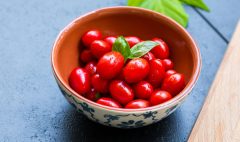Partitive articles in French
Partitive articles in French
Click here to watch the video tutorial on this topic.
PARTITIVE ARTICLES IN FRENCH
Partitive articles are used both in English and in French to express quantities that are unspecified or cannot be counted. In English, we often use phrases like “some,” “any,” or “a little” to convey this idea. However, in French, these partitives articles includes : du, de la, des, and de l’.
DU
This is one of the French partitive articles, used for masculine singular nouns. For examples: the nouns “pain” and “café” are masculine in nature, and are identified as singular nouns. Therefore, in this case, the most suitable partitive article to be inserted is “du”.
- J’ai besoin du pain pour le petit déjeuner. (I need some bread for breakfast.)
- Il boit du café tous les matins. (He drinks some coffee every morning.)
- Tunde mange du riz (Tunde eats rice.)
DE LA
This is another important French partitive article, used for feminine singular nouns. Amongst these feminine singular nouns includes “salade”, “pluie”, “viande”, “confiture”, “soupe”, “farine” etc. let’s make some sentences together, with some of these nouns.
- Elle mange de la salade pour le déjeuner. (She eats some salad for lunch.)
- ii. Joe achète de la viande pour le barbecue. (Joe buys some meat for the barbecue.)
- Ma sœur prépare de la soupe. (My sister cooks some soup)
DES
A French partitive article that is used for plural nouns. These nouns could either be masculine or feminine gender. For examples:
- J’aime bien des pommes vertes. (I like green apples.)
- Il y a des livres sur la table. (There are some books on the table.)
- Mes parents achètent des légumes. (My parents buy some vegetables.)
DE L’
This is a sensitive French partitive article because it is used before nouns starting with a vowel (a, e, i, o, u) or silent ‘h’. For better understanding, let’s look into the following examples:
- Elle boit de l’eau minérale. (She drinks mineral water.)
- J’ai besoin de l’huile pour cuisiner. (I need some oil for cooking.)
- Tu as de l’argent ? (Do you have any money?)
It is very important to note that in negative sentences, partitive articles usually change to ‘de’ or d’. Check out these examples below:
Pierre ne veut pas de café. (Pierre doesn’t want any coffee.)
Il n’y a pas de lait. (There isn’t any milk.)
Grace ne mange pas de viande. (Grace doesn’t eat any meat.)
Test your knowledge with this QUIZ







